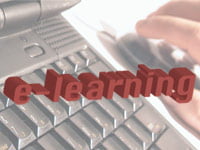Courses Suited to Online Learning
Education via the internet provides exciting opportunities for both educators and learners. The internet and World Wide Web have made the computer a dynamic and credible force in distance education, providing a new and interactive means of overcoming time and distance to reach learners. Education is now completely accessible, regardless of your age and geographical location. Points or previous educational attainment is not necessary for entry to the majority of courses on offer.
Whilst there is much qualitative and quantitative research that indicates the benefits and success rates in e-learning. The most recent research concluded that students’ learning styles were statistically significant for knowledge performance. Indicators do show how e-learning is more suitable for those with a certain learning style. Yes, some of us learn better in the traditional ‘chalk and talk’ setting, whilst there are others who can learn independently and don’t necessarily need the interaction and environment that the typical classroom provides. We call these students ‘thinkers and doers’.
Learning styles do determine how we learn best. It doesn’t necessarily mean you won’t be able to cope with an e-learning course if you are a ‘traditionalist’. However, you might have to put in that little bit of extra work though, to stay focused, interested and motivated. Regardless of the findings – testing yourself is the key to ensuring that new information goes into the long-term memory!
There is another issue when it comes to e-learning courses and the individual learner. There are some courses that might not suit you to do via e-learning compared to others on offer. There are learners who could learn without even realising they are learning but some of us need class contact, class instruction and the option to put a hand up and enquire. If a course heavily relies on specific terminology, demonstration or practical work – then you might want to consider the practicalities of doing the course on-line. However, nearly all e-learning courses are supported with visual components for the course: videos, easy and detailed to read manuals (to assist the decoding of new language specific to the course), along with on-line tutor support etc,.

